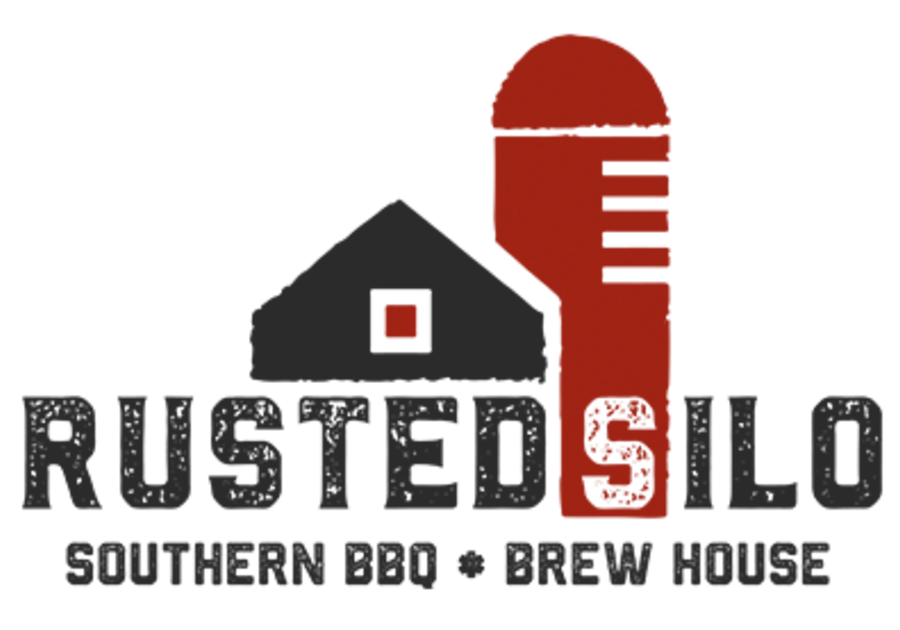This article was first published in May 2021, and it remains a staple for holiday and summertime get-togethers!
| "Remember, cooking is an art and baking is a science and barbeque is a cooking method, not a dish."-- Robert Ecker |  |
Located in Lizton, the award-winning Rusted Silo Southern BBQ & Brewhouse has become a favorite stop for many locals for great food and a great atmosphere. Pit Master and Head Chef Robert Ecker has an amazing story and loads of tips to share that will surely help you and your family perfect your grilling/smoking/barbecuing game! Read all the way through to learn how Chef Ecker prefers to prepare ribs, his tips for novice grillers, how kids can be involved, and how many pounds of meat Rusted Silo cooks in a single day!
How and when did you discover your love for cooking?
As a young boy, about 8 years old, my parents had their own businesses and would often have to work late and then come home to cook dinner for me and my little brother. One day, I had the idea to cook dinner for my family so that my mom wouldn’t have to do it when she came home. As a Cub Scout, we would go camping and participate in the preparation of our meals for the camping trip. I figured that if I could feed myself with little more than a fire, I could prepare dinner. So, one day my mom had left some frozen ground beef in the fridge to thaw out. With the help of a local community cookbook called “Bay Leaves” and my grandmother on the other end of a rotary dial phone, I was able to prepare an edible version of spaghetti for the evening meal.
When my parents came home from work, voila, dinner was done! The look of surprise was evident and after one bite, the look of enjoyment, too, was evident. The best part was that I didn’t have to wash the dishes that night. I was hooked! I can create something that made people smile and I didn’t have to do the dishes. After that night, Bay Leaves was my easy reading. Learning recipes, searching for ingredients and testing flavors became my new hobby.
Now, there were mistakes and meals that weren’t so great, but I never gave up. I kept pushing forward with new and interesting ingredients that I had never heard of before, but I didn’t let that stop me.
Describe your journey from there to Rusted Silo.
During my early years of cooking, I used this time to create a mental catalogue of flavors and smells of different foods. My dad used to get upset with me at meals because I would always smell my food and taste each dish separately so that I could understand the correlation of the smells with the flavors and how different ingredients worked together. This started my journey to becoming a culinary professional. Once I wrote an entire menu with recipes without ever stepping into a kitchen or testing a recipe, all from my mental culinary library of scents, flavors and ingredients.
Throughout high school, I worked in food related businesses as well as my family's jewelry store. Both of these jobs taught me very important lessons preparing me for the day that I opened my own business. One summer I worked in a meat market in the afternoon learning how to cut chickens, make ground beef and cut various types of steaks; then after that I would have to clean the butcher shop each night. I was bitten and the bug was cooking! After high school, I attended Gulf Coast Culinary School and further honed my culinary skills and knowledge base. After culinary school, I moved to Atlanta and began my professional culinary career with the Buckhead Life Restaurant Group, arguably the best hospitality group in Atlanta. From there I was selected to move to France as a consultant to the Walt Disney Company, opened my own micro-brewery restaurant in Panama City Beach, Florida, worked at Walt Disney World and then ultimately open the Rusted Silo in Lizton.
Best meal you've eaten so far?
Arguably one of the finest meals I’ve ever eaten was in a 3-Star Michelin Restaurant in Villeneuve-le-Comte, France. La Bonne Marmite was situated in a centuries-old building with low wood beam ceilings bearing carved initials dating back to the 1700’s. The seven course meal was extravagant and delightful, with everything from fresh Brittany oysters to lamb brains.
If invited to a cookout, what do you bring?
Sadly, I don’t get a lot of invites to cookouts. The restaurant business is one of little down time on the weekends or typical cookout times, we are working when others have time off. But, if I were, I would bring a nice summer salad of fresh lettuces, vegetables and grilled fruits such as pineapple, peaches, and mango.
What is the difference between grilling and smoking, and how do they cook meat differently?
The primary difference between the two cooking methods is the amount of direct heat radiating to the foods being cooked. Smoking consists of low temperature indirect heat and grilling on the other hand is high temperature direct heat. Smoking is suitable for tough large cuts of fat-laden meat that benefit from long cook times with consistent temperatures below 275 degrees F. Grilling is for leaner smaller cuts of meat that do not require long cook times, such as steaks, chops and chicken cuts or vegetables, fruits, and seafood.
What is your favorite kind of equipment for your work? For home chefs?
Any serious cook, home or professional, needs a set of high quality knives (chef, filet, paring), a set of stainless steel tongs, a slotted spatula, and a meat fork. With these tools, one can cook just about anything placed in front of them and on any type of cooking equipment, be it a grill, a smoker, an old truck wheel with a grill grate or as in the deserts of Africa, right on top of dried camel or elephant dung.
Do you prefer rubs or sauces, and when do you add them?
Both have their place in BBQ. Rubs are the base for the seasoning of the meats and the sauce is the final flavor enhancer. Some sauces can be too powerful for use during the cooking process and can hide the flavor of the meat, where others are subtle and work in conjunction with the rub/seasoning to create the prefect flavor explosion.
Favorite flavor/spice combinations?
For me, I love using rosemary and garlic on just about anything during the colder months and bright clean flavors in the spring and summer like ginger, basil and cilantro. However, you can never go wrong with plain old salt and pepper. Every cook should have a salt jar of Kosher sea salt and a pepper mill on hand at all times. These two seasonings allow the true flavor or whatever you are cooking to shine through without being plain.
Are there any new "trends" in grilling that more experienced home chefs should learn about?
The biggest trend in grilling currently is the newer style pellet grill/smokers. These utilize wood pellets of various composition to create a uniform and consistent heat and flavor profile during cooking. While I am not a huge fan of the “Easy Bake Oven for Dads,” it is a foolproof way for the average backyard cook to provide tasty meals for friends and family. The “set it and forget it” ability of these cookers removes some of the potential errors novice cooks may encounter.
What is your preferred prep process for ribs?
When I prepare ribs, I want to make sure that I am using the best quality ribs available, these are meaty yet still have a sufficient fat content to keep them moist during cooking. Before cooking, I make sure to remove the membrane from the back of the rib to prevent the final product from being tough. I also use a dry brine method of seasoning the ribs for a minimum of 8 hours before placing them on the grill or smoker. Dry brining is a process of “curing” the meat to lock in moisture and flavor. The use of sugar and salt in brining seals the pores of the muscle to prevent the moisture from evaporating during the process. Adding a little celery seed powder to the brine will aid in giving the meat a pinkish color, think ham, without having to add sodium nitrate to the brine. (Many people are sensitive to sodium nitrate and it also has detrimental health effects if over consumed.)
How much do you typically cook for a weekend at Rusted Silo?
During the busy BBQ months of the year, mainly those without an “R” in them, we cook on average about 14,000 pounds of meat each month, so that means daily we are cooking about 580 lbs of protein. While this is an average, we have seen an increase in weekend business and most recently we cooked about 1,000 lbs daily between Thursday and Saturday of last week.
For the novice griller, what are some resources you'd recommend for them to learn more?
While there are more than enough cookbooks about back yard cooking available, I would forego the books and focus on the equipment. A good grill with stainless steel or cast iron grates, the appropriate fuel (wood, lump charcoal or hardwood coal), basic seasonings (Kosher salt, ground pepper, garlic powder), an accurate meat thermometer, and your imagination. Your imagination can be the best cook book ever. Think of a recipe as a road map. You know the destination and the direction, however, you can take one or many detours along the way and still reach the final goal. If you just have to have a book, Bobby Flay’s Grill It! is a great tome for the novice griller.
How can kids be involved in the grilling/cooking process?
Take Over! Show dad or mom that you want to learn by getting in there and asking questions, use your online resources to educate yourself about the various cuts of meat, different cooking techniques and recipes for your favorite foods. I started cooking because I really didn’t want to wash the dishes, but we all have to start somewhere, so grab a dish towel and go to town shining up those pots and pans. Building a foundation of good sanitation and cleanliness will lead to eventually prepping the foods to be cooked and then ultimately cooking those same foods for your family. Oh, and math is your friend in cooking, you will use it daily if you choose to be a Chef or a cook when you grow up!



